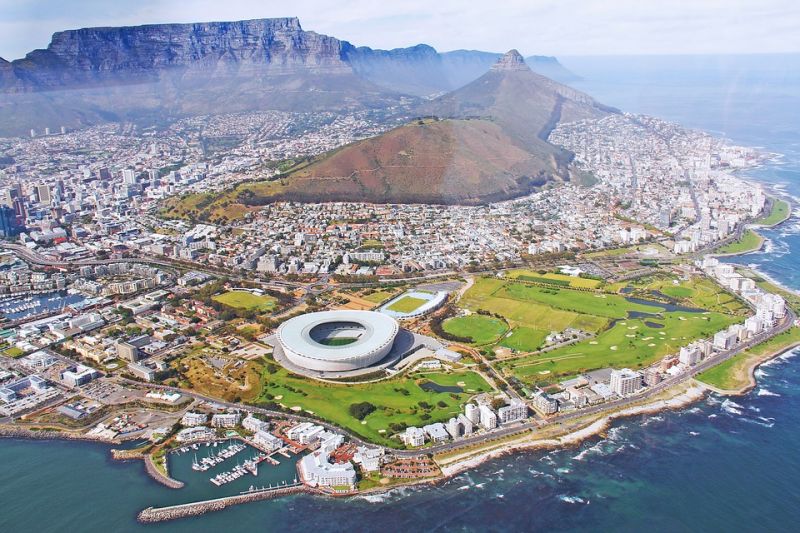#EveryDropCounts: City of Cape Town Passes New Water By-laws
Published on by Water Network Research, Official research team of The Water Network in Government
The City of Cape Town has approved a number of proposed amendments to its water by-law which they say will strengthen the current water restrictions.
Xanthea Limberg, mayoral committee member for water, informal settlements and energy, said the amendment does however not replace the level 6 water restrictions.

Cape Town, Source: Pixabay
She said property owners are not required to comply with this by-law by altering a water installation or part thereof which was installed in conformity with a previous version of the by-law.
“Only when it comes time to replace toilets and showerheads due to age or malfunction must new parts that conform with the revised standards be fitted.
All automatic flushing cisterns fitted to urinals must however be replaced immediately with either manually operated systems or properly maintained non-manual apparatus which causes the flushing device to operate only after each use. This is especially common in public facilities like restaurants and shopping centers,” she said.
The most notable changes include:
- Landlords must now keep record
of consumption for each residential unit in a multi-tenant complex/block of flats, and inform the City if contraventions of water restrictions are taking place; - New developments must install water conservation and demand management systems, or alternative water systems, and these must be approved by the City before development proceeds;
- The City’s oversight of plumbers has been strengthened by allowing the City to not only remove plumbers from its register but institute legal action if they are found to have transgressed the Water By-law;Council water meter. This technology is not yet at a stage of development for uptake by the City;
- Potable (drinking) water storage tanks must be impervious to sunlight to prevent the growth of bacteria;
- No cross-connection must exist on private property between potable and non-potable water systems;
- No irrigation of gardens is allowed between 09:00 and 18:00, including from boreholes and well-points. Previously no irrigation was allowed 10:00 and 16:00,and did not include borehole water. Watering gardens in the heat of the day can result in significant water lost to evaporation;
- Maximum capacity for toilet cisterns and shower head flow has been lowered. Toilets are now only allowed a maximum6 litre cistern volume (down from 9 litres), and water from shower heads must flow out at no more than 7 litres per minute (down from 9.5 litres
/minute); and - All pools must be fitted with a cover to avoid evaporation when not in use
Read full article: IOL
Media
Taxonomy
- Resource Management
- Water Law
- Water Resource Management
- Integrated Urban Water Management
- Drought
- Urban Water
- Urban Water Supply
- Water Resource Management
- Law & Regulations
- Resource Management
- resource management